Why Gratitude Belongs in Your AP Exam Toolkit
When you think of prepping for AP exams, you probably picture highlighters, practice tests, and color-coded calendars. That’s all important — but there’s a quieter, often-overlooked skill that can make those study hours far more effective: gratitude. This isn’t about being unrealistically cheerful or ignoring the stress. It’s about adopting small, intentional practices that shift how you respond to pressure, recover from setbacks, and keep your attention steady during marathon study sessions.

What Gratitude Actually Does for Students
Gratitude isn’t a magic pill, but it reliably nudges several psychological levers that matter during exam season:
- Reduces perceived stress: Not by eliminating deadlines, but by changing what we dwell on in stressful moments.
- Improves sleep quality: Quieting the mind before bed helps consolidate learning — and sleep is the unsung hero of memory.
- Boosts motivation and persistence: Recognizing small wins keeps you engaged across long study plans.
- Strengthens relationships: A quick note of thanks to a friend or teacher improves your support network — invaluable during crunch time.
Quick Gratitude Practices You Can Try Today
Below are practical, low-effort strategies designed for busy AP students. You can fit most of them into 2–10 minutes and still get measurable benefits.
1. The 3-Minute Morning List
Right after you wake up, write three things you’re grateful for. Keep it specific — “my study buddy Alex” or “an explanation that finally clicked in AP Calculus.” Specificity helps your brain connect the feeling to concrete experiences.
2. Gratitude Pause Between Study Blocks
After every focused 45–60 minute study block, take a 60–90 second pause to note something that went well in that block. It could be staying focused, solving a tough problem, or even resisting the urge to check your phone.
3. One-Sentence Evening Reflection
Before bed, jot one sentence about something positive from the day that relates to your AP goals. It could be about progress, preparation, or kindness you received. This helps your brain prioritize helpful memories before sleep.
4. Gratitude for Effort — Not Just Results
Learn to thank yourself for effort. Replace “I’m grateful I got an A” with “I’m grateful I stuck with the practice test even when it felt hard.” This builds a growth mindset and makes setbacks less devastating.
How to Make Gratitude a Sustainable Habit
Habits stick when they’re anchored to existing routines. Here’s a weekly plan you can adapt to your AP schedule.
Weekly Gratitude Plan (Sample)
| Day | When | Practice | Time |
|---|---|---|---|
| Monday | Morning | 3-Minute Morning List | 3 min |
| Tuesday | After Study Block | Gratitude Pause | 1–2 min |
| Wednesday | Evening | One-Sentence Reflection | 1 min |
| Thursday | Anytime | Thank a Peer or Teacher | 2–3 min |
| Friday | Morning | Revisit Wins of the Week | 5 min |
| Weekend | Flexible | Longer Reflection or Journal | 10–20 min |
This plan is modular. If you miss a day, don’t sweat it — gratitude works with consistency, not perfection.
Practical Examples for AP Subjects
Gratitude can be tailored to the subject you’re studying. Here are examples to spark ideas you can reuse.
AP Biology
- Be grateful for a clear lab demonstration that clarified a concept.
- Thank a classmate for explaining cellular respiration in a new way.
AP U.S. History
- Celebrate the moment a timeline clicked and connections formed.
- Acknowledge the value of a primary source that made an argument vivid.
AP Calculus
- Note the specific problem you solved after struggling — the win matters.
- Appreciate a tutor or teacher who asked the right question, leading you to the method.
Using Gratitude to Manage Test Anxiety
Anxiety narrows attention and fuels negative self-talk. Gratitude doesn’t eliminate anxiety, but it weakens the habit of catastrophizing by shifting attention to concrete positives. Try this micro-routine when anxiety spikes:
Anxiety-Soothing Micro-Routine (90 seconds)
- 30 seconds: Breathe — inhale for 4, exhale for 6.
- 30 seconds: List two specific things you’re grateful for in the moment (a water bottle, a clear desk, a supportive teacher).
- 30 seconds: Choose one next step you can take right now (review flashcards, attempt one practice problem, text a study buddy).
That last step is crucial: gratitude both calms and primes you for action, restoring a sense of control.
How Gratitude Helps Memory and Learning
Memory consolidation depends on attention and sleep. Gratitude helps with both. By lowering rumination, you preserve attentional resources for encoding new material. At night, ending the day on a positive and focused note reduces intrusive thoughts, which supports deeper sleep and thus better memory consolidation. In short: gratitude supports the biological processes that make studying stick.
Tools and Formats That Fit Student Life
Not every technique suits every student. Here are formats to try — pick one and test it for two weeks.
Digital Quick Notes
- Use a note app, create a “Gratitude” note, and add tiny entries during study breaks.
- Benefits: searchable, lightweight, and available on the go.
Sticky Notes on Your Desk
- Write a quick line or two on a sticky note and stack them; reading the stack on low-energy days is grounding.
Voice Notes
- Record a 20-second voice memo of something you appreciated that day — useful for commuters or athletes.
Short Shared Messages
Send a one-line thank-you to a peer or teacher for help. It deepens connections without requiring extra time. This also expands your support system — essential during the stress of AP season.
Integrating Gratitude with Smart Study Strategies
Gratitude works best alongside evidence-based study methods. Combine it with:
- Spaced Repetition: Use gratitude pauses to note what improved after a spaced review session.
- Active Recall: After testing yourself, list one thing you did well in the recall attempt.
- Practice Tests: After a practice test, note a specific improvement or insight before diving into corrections.
For students using tutoring support, mentioning gratitude in sessions helps tutors tailor feedback. If you work with Sparkl’s personalized tutoring, for example, a quick note about progress or appreciation for a teaching moment strengthens that 1-on-1 relationship and helps tutors adjust pacing and focus to what’s working for you.
Common Pitfalls and How to Avoid Them
Gratitude is simple but not always intuitive. Here are mistakes students often make — and how to steer clear.
1. Being Vague
“I’m grateful for friends” is fine, but “I’m grateful Alex quizzed me on key dates for 15 minutes” has more impact. Specificity connects the feeling to action.
2. Treating Gratitude as a Chore
If it feels like another item on a checklist, shrink it to a sentence or a voice memo. The aim is consistency, not performance.
3. Expecting Immediate Magic
Gratitude accumulates. Track it for a couple of weeks before judging whether it helps your focus or sleep.
Real-World Student Scenarios
Here are a few short examples of how students have used gratitude to get through AP season — adapt them to your context.
Case 1: The Overwhelmed Senior
Jamila had two APs, college apps, and a job. She added a 60-second gratitude pause after each study session and started thanking her manager for flexible shifts. The result: less friction with her schedule and a calmer evening routine that improved sleep.
Case 2: The Perfectionist
Marco obsessed over every practice test mistake. He began noting one thing he did well after each test. Over time, his anxiety about minor errors dropped, and he actually began making fewer careless mistakes.
Case 3: The Collaborative Learner
Rina used gratitude to strengthen study group dynamics. A weekly “thank-you circle” after review sessions boosted morale and led to more peer-led explanations—an efficient way to learn complex ideas in AP Chemistry.
Measuring Progress Without Becoming Attached to Numbers
You can track how gratitude affects your prep with simple metrics that reflect wellbeing and performance:
- Sleep quality (hours and how rested you feel)
- Number of focused study blocks per day
- Frequency of checking in with a tutor or peer
- Self-rated stress levels on a 1–10 scale
Keep the focus on trends over time, not day-to-day fluctuations. If you’re working with a tutor, share these metrics — a tutor from Sparkl’s personalized tutoring team can incorporate them into tailored study plans and help adjust strategies based on how your stress and study efficiency evolve.
When to Seek More Support
Gratitude is powerful, but it’s not a replacement for professional help. If stress or anxiety is significantly interfering with sleep, daily functioning, or academic performance, talk with a school counselor, parent, or healthcare provider. Gratitude complements professional support, and combining approaches is often the most effective route.
Wrapping Up: A Tiny Habit with Big Returns
AP season can feel like a nonstop sprint. Gratitude is a small practice you can weave into the pauses — and those pauses are where focus, memory, and stamina are restored. The best part? Gratitude requires almost no extra time but compounds quickly: clearer nights, steadier motivation, and stronger relationships with the people who help you learn.
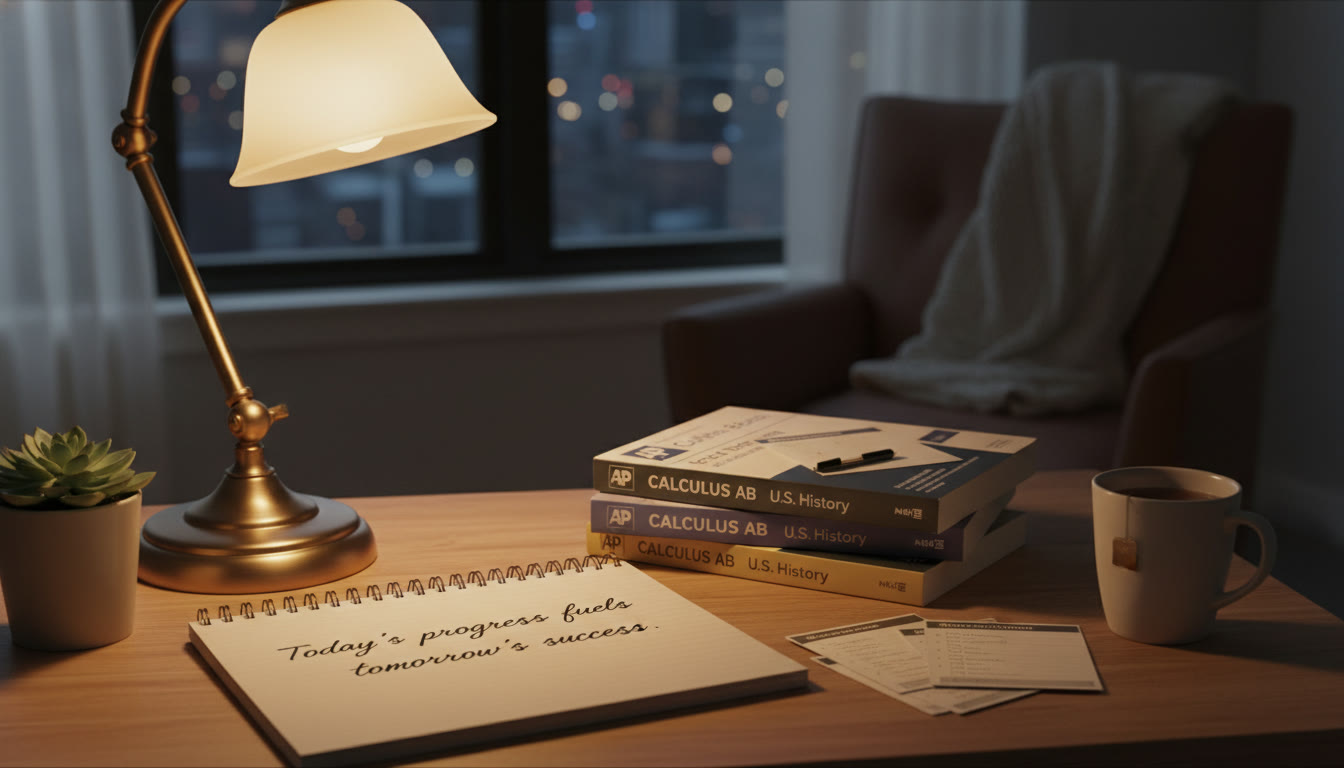
Try a simple experiment: for the next two weeks, add a 60-second gratitude pause to your study routine and track one metric (sleep, focus, or number of completed study blocks). Notice the trend. If you want help making a plan that blends gratitude with targeted study methods, consider personalized 1-on-1 guidance—Sparkl’s tutors can design tailored study plans, give focused feedback, and use AI-driven insights to help you prioritize what matters most each week.
Finally, be kind to yourself. Preparing for AP exams is a marathon of learning, not a sprint to perfection. A few well-placed moments of gratitude can make the whole journey more sustainable, more human, and yes — more successful.
Quick Starter Checklist
- Morning: Write three specific things you’re grateful for (3 minutes).
- During study breaks: Take a 60–90 second gratitude pause.
- Evening: One-sentence reflection before sleep.
- Weekly: Share a thank-you with a peer or teacher and revisit wins.
- Track: One wellbeing metric (sleep or stress) for two weeks.
Good luck, and remember: learning is as much about how you care for your mind as it is about the hours you put in. A little gratitude goes a long way.




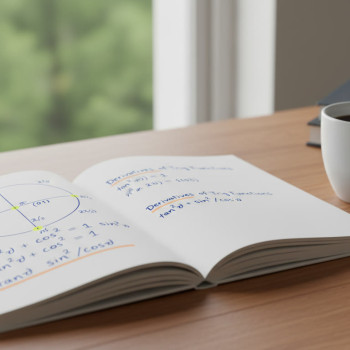
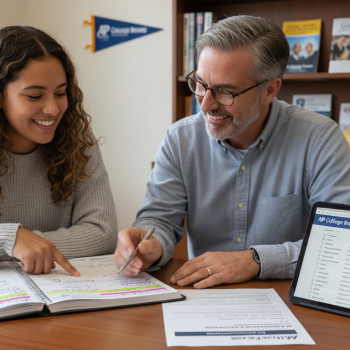
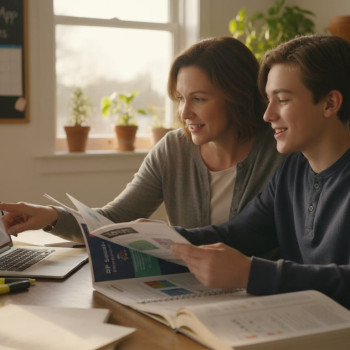

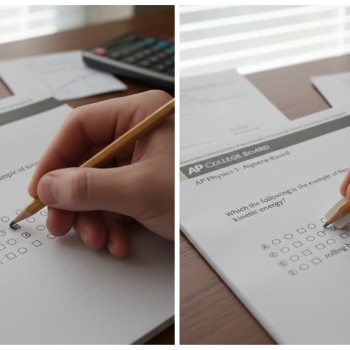








No Comments
Leave a comment Cancel